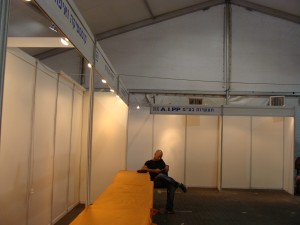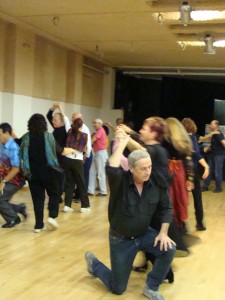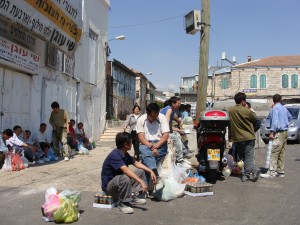
The Jerusalem Post, August 21, 2009
The crowd is small and subdued Friday morning at Tel Aviv’s Hangar 11. Drifts of Israeli Arabs and Israelis walk through an air-conditioned shuk, passing stalls lined with pickles, olives, baklawa, cosmetics, clothes, arts and crafts. One vendor—a tall, lanky man with black hair—sprays puffs of perfume in the air. “Bosem, bosem,” he says.
A makeshift stage is tucked behind the stalls. Below a green and orange sign that reads Koolanu 09 in both Arabic and Hebrew, an Israeli woman grasps a microphone, and sways as she sings a one-sentence song. “We are one, we are one,” she repeats in English.
 After the ‘non-revolution’
After the ‘non-revolution’

